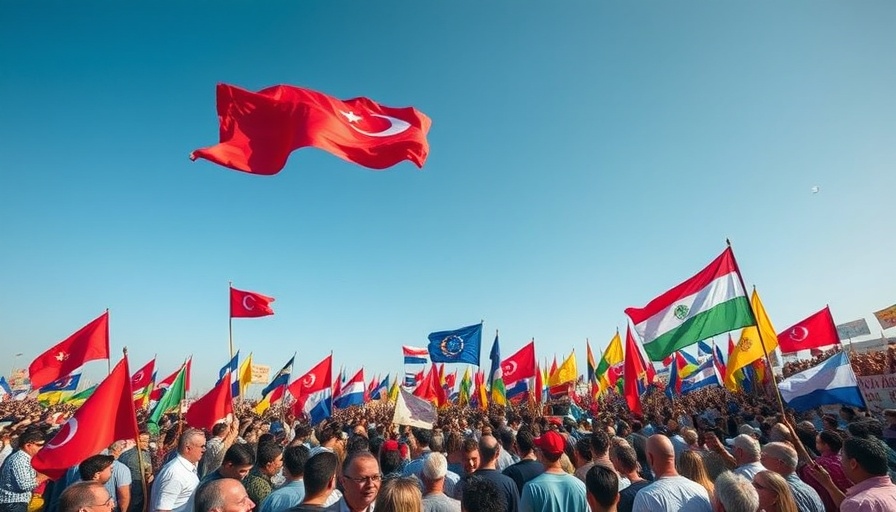
Kurdish Insurgent Group's Ceasefire: A New Dawn for Turkey?
The recent declaration of a ceasefire by the Kurdistan Workers’ Party (PKK), prompted by jailed leader Abdullah Öcalan, marks a significant milestone in the prolonged conflict between the Kurdish insurgents and the Turkish state. This decision, hailed by various political entities in Turkey, including President Erdogan’s government, offers a glimmer of hope for lasting peace in a region marred by decades of violence.
The Impact of Öcalan's Call for Peace
Abdullah Öcalan's appeal has been pivotal in the PKK's announcement, which comes after over 40 years of conflict resulting in more than 40,000 deaths. His call not only signifies a potential cessation of hostilities but also implores the group to explore political avenues rather than armed struggle. Erdogan described this moment as a "historic opportunity," suggesting a shift in the Turkish political landscape if a genuine peace process is undertaken.
Historical Context: A Legacy of Conflict
The roots of the PKK’s insurrection date back to the early 1980s, centering around the quest for Kurdish autonomy within Turkey. The Kurdish population, constituting approximately 20% of Turkey’s demographic, has endured systemic discrimination for decades. Previous peace efforts, notably from 2009 to 2015, faltered amid political turmoil and escalated violence, making Öcalan's re-emergence as a peace advocate a noteworthy turn in the narrative.
Political Ramifications for Turkey
The Turkish government faces a crucial crossroads: whether to take Öcalan's calls seriously and grant him the necessary freedoms to oversee a peaceful transition. Justice Minister Yilmaz Tunc’s dismissal of immediate negotiations raises questions about Ankara's adaptability in this newfound political climate. Analysts suggest that Erdogan may leverage this peace opportunity to bolster his domestic standing as the country approaches the 2028 elections.
Regional Reactions: A Broader Implication
The ripple effect of this ceasefire extends beyond Turkey’s borders. Neighboring Iraq has positioned itself positively, viewing Öcalan's statement as a step towards regional stability. The PKK’s long-standing presence in Iraq has been a point of contention in Turkish-Iraqi relations. Achieving a workable peace could alleviate future tensions and promote cooperation in the politically fluid Middle Eastern landscape.
Potential Obstacles to Peace
While optimism is palpable, skepticism abounds. The call for a future PKK congress to address disarmament calls for a conducive political environment—a stipulation that risks being overlooked by the Turkish authorities. The PKK's insistence on Öcalan’s improved prison conditions reflects deeper demands for political reform and recognition of Kurdish rights.
Conclusion: A Fragile Path to Peace
As the implications of the PKK's ceasefire echo throughout Turkey and beyond, it serves as a reminder of the complexities of forging sustainable peace amidst historical grievances. The next steps taken by both the Turkish government and the PKK will be critical in shaping the future not just for the Kurdish community but for Turkey as a whole. With heightened attention on the Turkish political climate, local and global stakeholders will remain vigilant.
In this ever-evolving situation, professionals must stay informed and advocate for constructive dialogue, recognizing the potential for significant shifts in both domestic and foreign policy. For those engaged in government and politics, understanding the wider implications of Turkey's internal strife can inform strategy and engagement in related regions.
 Add Row
Add Row  Add
Add 




Write A Comment